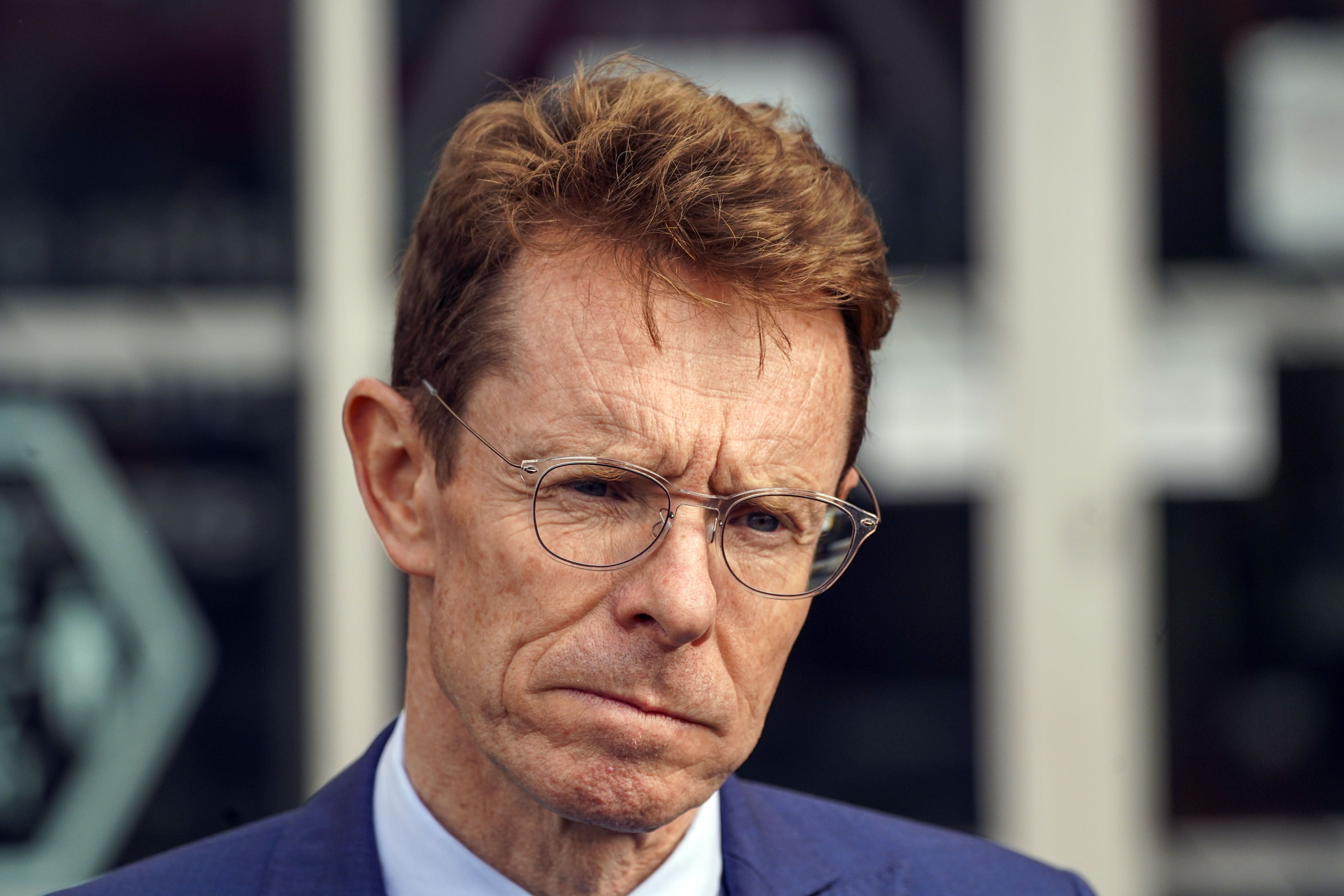Tory mayor calls for tax rises over spending cuts in Rishi Sunak’s autumn budget
‘A little extra tax’ needed to support public services valued by public, says Andy Street

The Conservative mayor of the West Midlands has issued a plea to Rishi Sunak and Jeremy Hunt to raise taxes rather than cut public services in their crucial autumn statement next month.
Whitehall sources suggest that Mr Sunak favours a 50/50 split between tax rises and spending reductions in the 17 November statement, when Mr Hunt will try to fill a gap in the public finances estimated at around £40bn.
But Andy Street warned that voters around the country will see any withdrawal of funding from services like health and policing as an indication of the government failing to support their communities, as Boris Johnson’s “levelling up” manifesto promised in 2019.
The former John Lewis boss is one of the most high-profile Tories to speak out for higher taxes, just weeks after Liz Truss made massive tax cuts the centrepiece of her drive for growth in the September mini-Budget.
He also called on the prime minister and chancellor to defend funding for long-term capital projects like the HS2 rail link, broadband connectivity and skills training, telling BBC Radio 4’s PM: “This is investment in the underlying efficiency of the British economy… Don’t compromise on that.”
Mr Street – who is held up by the Tory leadership as an example of Conservatives successfully wielding power in the traditionally Labour inner cities – said that voters in the West Midlands would put healthcare at the “top of the list” of what they want from government.
And he said it was “not the wrong thinking” when Mr Sunak increased national insurance by 1.25 per cent as chancellor to raise £12bn for health and social care – an increase reversed by Liz Truss which the new PM has not promised to restore.
“On short-term decisions on public services, whether it is health or police, they are the things that people in the West Midlands say are indications of whether the government is supporting these communities, so we can’t compromise on them,” said Mr Street.
“If that means in the short term we have got to pay a little extra tax to protect them, that is where I am.”
Mr Street also called on Mr Sunak not to ditch Ms Truss’s plans for investment zones offering tax breaks for companies which put money into factories, offices and homes in areas of the country needing development.
The new PM has yet to announce whether the zones will be spared from the axe that he has wielded over much of the Trussonomics agenda. But influential voices within the Treasury are understood to be arguing that they will simply shift investment around the UK while costing revenue to the Exchequer.
Mr Street said that his message to Mr Sunak was to “press ahead with them because they are evidently proven to work and they are good sensible economics because you win huge private sector investment by putting a bit of public sector cash on the table”.
He rejected the argument that the zones would simply pit different parts of the UK against one another for a finite pool of investment cash, pointing to the recent location of Goldman Sachs offices in Birmingham and a gigafactory for electric vehicle batteries in Coventry as examples of where the West Midlands was in fact competing with alternative sites abroad.
“I understand (Mr Sunak) wants to review what he has inherited,” said the West Midlands mayor. “But this is a winning option.”







Join our commenting forum
Join thought-provoking conversations, follow other Independent readers and see their replies
40Comments